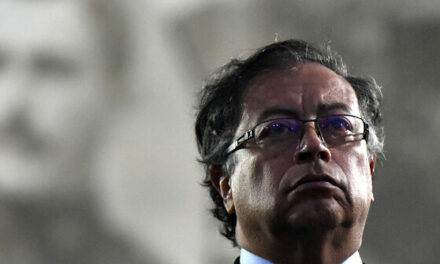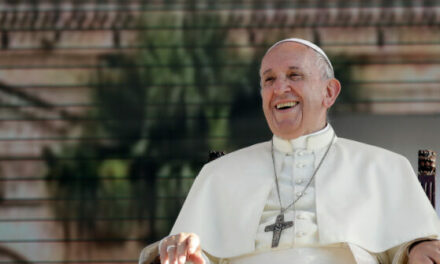We support our Publishers and Content Creators. You can view this story on their website by CLICKING HERE.

A recently released 20-year-old political prisoner of the socialist regime in Venezuela denounced to the BBC over the weekend that he was physically and psychologically tortured during his unjust imprisonment.
The man, identified by the BCC as “Juan,” is one of the thousands of individuals that the regime of dictator Nicolás Maduro in Venezuela unjustly detained in the aftermath of the fraudulent July 28 presidential election, which Maduro insists he “won.”
According to “Juan’s” comments to the BBC, he was subjected to routine beatings, fed rotten food, and suffocated in a specially designated torture chamber.
The Venezuelan regime launched a brutal persecution campaign against dissidents following the sham election that, according to U.N. estimates, left 27 dead and more than 2,400 detained, roughly 1,800 of which have been confirmed by Foro Penal, a local non-government organization as of early December. Foro Penal told the BCC that the organization has records of 23 people who were detained in the crackdown and then disappeared.
Many of the unjustly detained individuals — including dozens of children — stand accused of committing “terrorism” and other anti-regime crimes for protesting the fraudulent results of the July election.
The Maduro regime hunted dissidents using several tactics such as retrofitting state-maintained smartphone applications and directly abducting individuals from their homes and forcing them to record humiliating “apologies,” a tactic locally known as “Operation Knock Knock.”
Additionally, Maduro commissioned the construction of two “reeducation camps” for dissidents of the socialist regime, located in prisons that the regime emptied of its inmates last year.
One of the camps is located in the Tocorón prison, an inmate facility that served as the main headquarters of Tren de Aragua until September 2023, when Venezuelan security officials “raided” the prison, leading to the escape of some of the gang’s topmost brass. The leader of the Tren de Aragua, Héctor “the Child” Guerrero, remains missing since his disappearance from the prison at press time.
Foro Penal’s Vice President Gonzalo Himiob told the BBC that the organization has documented several cases of Venezuelan individuals who were not protesting but got arrested anyway for being in the vicinity of a protest. “Juan” claimed to the BCC that he was unjustly detained in that manner.
The man recounted that he was out running an errand when a group of hooded men intercepted him, covered his face and beat him while accusing him of “terrorism” and “incitement to hatred,” among other alleged crimes. Juan explained that regime officials “planted Molotov cocktails and gasoline on me, and then took me to a detention center, where he spent several weeks in detention before being transferred to the Tocorón prison.”
“When we arrived at Tocorón, they stripped us naked, beat us, insulted us, shouted ‘terrorists’ at us. We were forbidden to raise our faces and look at the guards, we had to lower our faces to the floor,” Juan said. “Then they uniformed us and put us in the cells.”
The man explained to the BBC that he was assigned to a small cell “measuring three meters by three meters,” which he had to share with five other people. The cell had six beds distributed in three bunks and a “little square” with no privacy in one corner, where a septic tank and “a pipe that served as a shower” were located.
“More than a prison, in Tocorón I felt like I was in a concentration camp,” the man said. “It made me think of what I have seen in movies and heard about the concentration and torture camps of Augusto Pinochet’s dictatorship in Chile.”
“They tortured us physically and psychologically. They didn’t let us sleep, they always came by to ask us to get up and line up,” he continued. “We never knew what time it was because there were no clocks. We started asking visitors the time and then with the sun’s rays we started to calculate the time as the sunlight came up the wall.”
The man denounced to the BBC that Tocorón has “punishment cells” where the most rebellious inmates or those who “dare to talk about politics or ask for a phone call to communicate with their families” are thrown into. Juan recounted that he was placed into one such cell and only given a meal every two days.
“It is a very dark cell and measures one meter by one meter. I was very hungry. I get hungry just remembering it. What kept me going was thinking about all the injustices that were happening and that someday I was going to get out of there,” Juan said.
The man further denounced that there is another torture cell in Tocorón known as “Adolfo’s bed,” allegedly named after the first person who died on it, where inmates are subjected to forced suffocation.
“It’s a dark room without much oxygen about the size of a vault. They put you in there for a few minutes until you can’t breathe and pass out or start banging on the door in desperation. They put me in there and I lasted a little over five minutes. I thought I was going to die,” Juan said.
Juan explained that he and the other inmates he shared prison cell space with were only given six minutes of cold water to shower. The inmates were only allowed to leave their cell for ten minutes every three days and were subject to other mistreatments such as being served rotten or expired food, routine beatings, and being made to “walk like frogs” with their hands around their ankles.
“Many acted like zombies. They were just waiting for food, which was also of lousy quality,” Juan said, stressing that many of his companions were depressed and some had lost their will to live.
The BBC reported that Juan was released from prison in mid-November after Maduro ordered to “review” and “rectify” some of the detainees’ cases. Juan is required to appear before a terrorism court in Caracas every 30 days.
“I don’t want him to go out anywhere alone. He used to play basketball and go to the gym. I don’t want him to go out anywhere anymore. I’m constantly afraid of what they’ll come looking for. I’d rather he stay far away,” the man’s father told the BBC.
Christian K. Caruzo is a Venezuelan writer and documents life under socialism. You can follow him on Twitter here.

 Conservative
Conservative  Search
Search Trending
Trending Current News
Current News 







